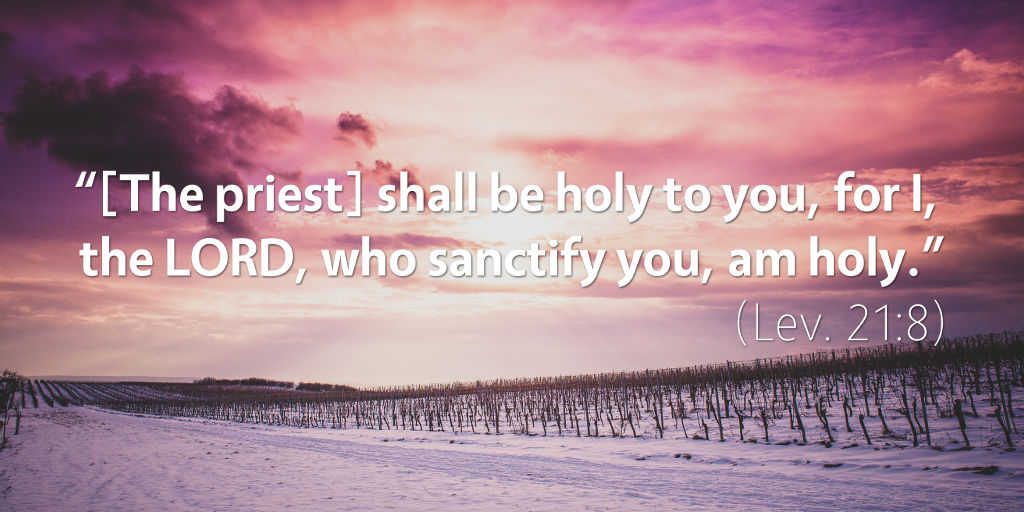Bible Readings for April 17th
Leviticus 21 | Psalms 26–27 | Ecclesiastes 4 | 1 Timothy 6
If the last few chapters of Leviticus have focused on the personal holiness required of all Israelites, Leviticus 21–22 focuses specifically on the personal holiness of the priests, who were called to a higher standard of living. In fact, the priests faced a few requirements that we may find surprising or even shocking.
For example, why were priests forbidden from coming into contact with any dead person outside their blood relatives (Lev. 21:1)? And why was the chief priest not allowed to mourn at all by letting his hair hang lose or tearing his clothes (Lev. 21:10)? Or, why was he not allowed to leave the sanctuary even to visit his own father or mother who had died (Lev. 20:11–12)?
While we might understand why priests were not allowed to marry prostitutes or a divorced woman (Lev. 21:7), why would God forbid the chief priest even from marrying a widow (Lev. 21:14)? And what possible reason could Yahweh have for disqualifying from priestly ministry anyone with a physical blemish, whether that person was blind or lame, mutilated in the face or in a limb (Lev. 21:18), injured in their hand or foot (Lev. 21:19), a hunchback or a dwarf, merely nearsighted, or had a skin disease or crushed testicles (Lev. 21:20)?
The answer to these questions follows the same idea we explored in yesterday’s meditation about the general holiness required for all Israel: Yahweh had intended the Promised Land to be the holy land where he dwelt with his holy people. But more precisely, it was the tabernacle (and later, the temple) within the Promised Land that would represent the new Garden of Eden. So, while Israel in general had to avoid any wicked behavior that would defile the Promised Land generally, the priests had a far greater responsibility to avoid anything that reeked of the curse of sin, death, or the devil.
The priests, therefore, were not allowed to serve in the tabernacle while they were defiled by death or by sexual immorality or even by physical blemish. As Allen Ross writes, “If death was in the community, [the priests] had to convey the eternal hope of the covenant [by refraining from mourning]; if they married, they had to live out the purity of the covenant in their marriages; if they were not perfect in body and mind, they could not enter priestly service.”1
But while the priests were commanded to avoid anything related to the curse of the fall, they were powerless to reverse the curse. To turn back the effects of the fall and to restore God’s creation again to its original perfection, God’s people would need a much greater priest who could minister according to much greater promises.
And only in the fullness of time would that priest eventually come.
1 Allen P. Ross, Holiness to the LORD: A Guide to the Exposition of the Book of Leviticus (Grand Rapids, MI: Baker Academic, 2002), 389.
Podcast: Play in new window | Download (4.9MB) | Embed
Subscribe: Apple Podcasts | RSS | More

Scripture quotations are from The Holy Bible, English Standard Version copyright © 2001 by Crossway Bibles, a division of Good News Publishers. Used by permission. All rights reserved.


